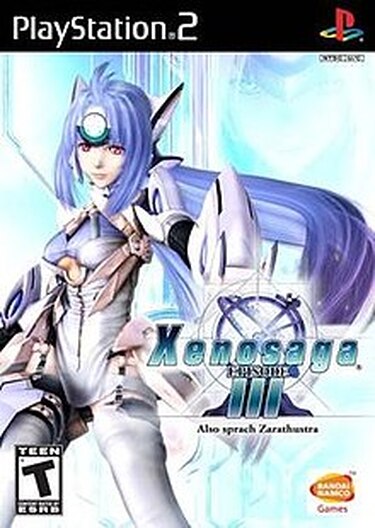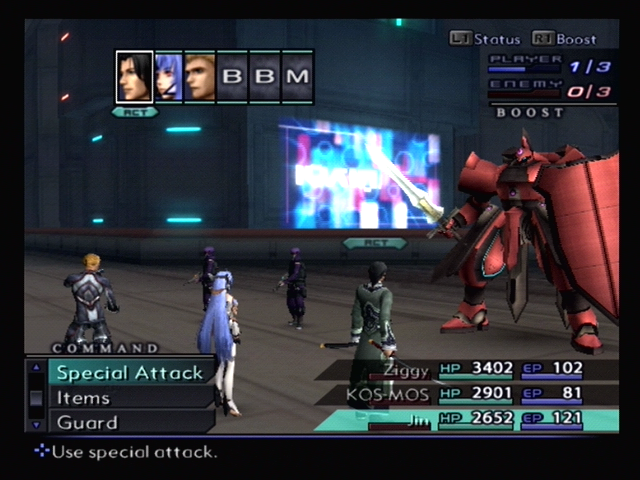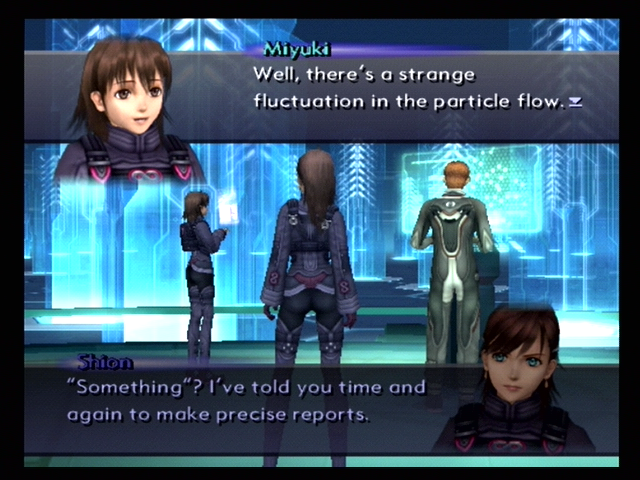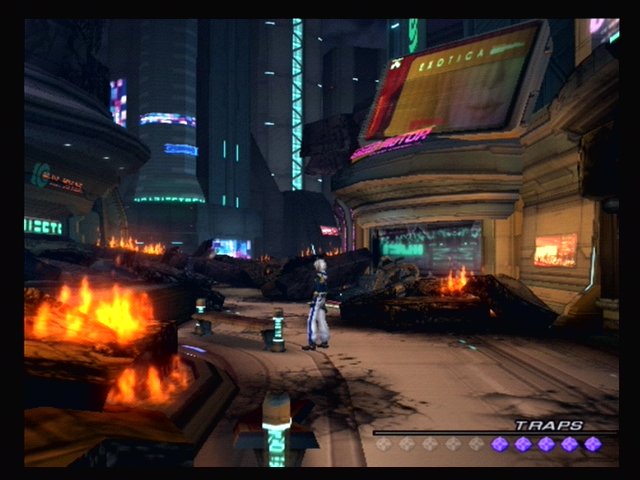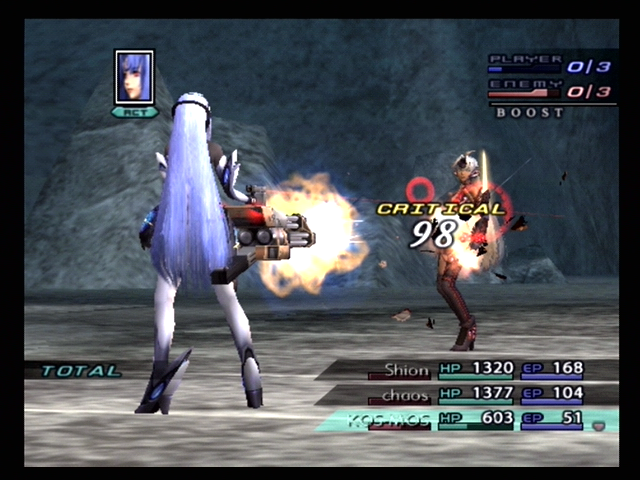Partridge Senpai's 2019 Beaten Games:Previously:
2016 2017 2018* indicates a repeat
1.
Night Slashers (Switch)
2.
Bye-Bye BOXBOY! (3DS)
3.
GTA4: The Ballad of Gay Tony (Xbox 360)
4.
Katamari Forever (PS3)
5.
Detention (PS4)
6.
Donkey Kong 64 (N64) *
7.
OctoDad: Dadliest Catch (PS4) *
8.
FlintHook (Switch)
9.
God of War (PS4)
10.
God of War HD (PS3)
11.
Tiny Barbarian DX (Switch)
12.
God of War 2 HD (PS3)
13.
Starlink (Switch)
14.
Shin Gundam Musou (PS3)
15.
Battle & Get! Pokemon Typing DS (DS)
16.
Banjo-Kazooie (N64) *
17.
Super Mario 64: Rumble Edition (N64)
18.
Mario Party 3 (N64) *
19.
Paper Mario (N64) *
20.
The Legend of Zelda: A Link to the Past (SNES) *
21.
The Legend of Zelda: Link's Awakening DX (GBC) *
22. The Legend of Zelda: Oracle of Ages (GBC) *
23. The Legend of Zelda: Oracle of Seasons (GBC) *
Rounded off my revisit marathon of the old isometric Zelda games with a linked playthrough of the two Oracle games on the Gameboy Color. As with Link's Awakening, I just bought them on the Japanese 3DS eShop, as it was the cheapest and easiest way to play them for me (and I'd never gotten a chance to play through them in Japanese before, so this was a very neat way to do that~). Ages took me just under 13 hours to get through, and Seasons took me just a hair over 10 hours. I didn't do alll the content in both (and made no dedicated effort to collect rings in either), but I did do most of the heart pieces and the trading sequence in each. They're games which were released as a pair, and even have content that can only be accessed by using a code at the end of one at the start of the other. All of my praises and comments of one are really directly linked to the other in many ways, and the way they were developed side-by-side as well just made it make more sense to me to do a combo-review for them both instead of just constantly referring back and forth to each of them in two separate reviews to make all the same points twice XD.
The first thing I'll comment on is the original translation of the games. Other than some super minor things like General Onox being named General Gorgon in this version, the translation is pretty hard to find differences in compared to the English version. Nowhere is there something nearly as blatantly obvious on a visual level as Link's Awakening's changing of you returning the mermaid's bikini top to her (instead of her necklace as it is in the English version). However, the one REALLY painfully obvious bit that was changed for the English version is the ring-shop owner. The Oracle games have a ring-system that is basically just passives that Link can equip several at a time at the ring shop after having them identified. In the English version, the ring shop owner is just a bit of an eccentric guy who loves rings and sharing them with people. In the Japanese original, however, the ring shop owner is a pretty damn offensive gay stereotype who hits on Link in like every conversation they have together (he even gives Link the ability to use rings because he says Link is "his type"). '~' to emphasis syllables being said lyrically and hearts punctuate his speech constantly, and I'm just glad he's a pretty easily ignored part of the game, because it's honestly a pretty terrible portrayal that has NOT aged well (although is hardly a rare sight in Japanese media from back then, unfortunately). Like, at least he isn't a villainous character, but using "they're queer" as shorthand for eccentricity is just such appallingly lazy writing on top of the offensive trope that I really can not let it go unmentioned here in good conscience. And while I can let Nintendo themselves slide on this one, as Flagship wrote the scenario for this instead of them, main villains like Yuga and Girahim in more recent Nintendo-written and developed Nintendo games show that they still aren't afraid to use queer-coding to denote eccentricity :/
Pivoting to their design, both games take a lot of graphical assets, like a LOT, from Link's Awakening, and both play pretty similarly to that game. There has clearly been some engine work done on more subtle mechanical levels (for example, picking up pots with the power bracelet takes ever so slightly longer), as well as more directly and immediately noticeable ones (like how you need to be moving forward to throw a bomb/pot in front of you, and not just drop it on top of yourself). Other than that, though, the way the game plays should be immediately recognizable to any who has spent any length of time with Link's Awakening, even down to how you can still reassign any item you have to either the A or B button.
The main difference that is most immediately obvious is how much this game has improved its signposting compared to Link's Awakening. You just about always have a character whom you can go back to talk to for a hint about where to go next, and they always hit you up with a quick, mandatory cutscene not only after dungeons but after key plot developments to give you a kick in the right direction. Knowing where to go next and how to do it is FAR less of a problem in the Oracle games than in Link's Awakening, and it makes getting from point A to point B in each game a much easier affair.
These games have an interesting history that really shows in their final presentation. Originally intended to be SIX games developed by Capcom for Nintendo, two of which being remakes of the first two NES Zelda games, that was soon scaled back to three new games that would be interconnected, and then again scaled back to two. This can be seen not just in how Seasons has many dungeon bosses that are straight-out of Zelda 1 (likely assets finished before the decision was made to scrap that remake idea) to how similar the sub-items in each game are to one another.
However, the other thing I really noticed that made sense with this history is just how much Oracle of Seasons feels like the "first great idea" for the interlinked-game premise, and Oracle of Ages feels like the "good enough supplementary idea". Oracle of Seasons is superior in so many ways to Oracle of Ages, mostly on account of each game's respective gimmick, that is makes Oracle of Ages look a lot worse quality-wise when the direct comparison is forced due to their connected nature.
Seasons' gimmick is a rod that lets you change seasons by standing atop stumps you can find throughout the game. A mechanic that Minish Cap would later almost directly copy with how you can only shrink on top of certain stump (or stump-like objects). You change the seasons depending on what season-spirits you have, and it's an animation that takes roughly a second and a half. The world around you will change depending on the season (snow piling up to make new platforms in winter, leaves covering up pits in fall, water drying up in summer, flowers blooming in spring) and can allow you to access new areas because of it. It works really well, and even though you need to find the stumps to progress are easy to find as the world map is telegraphed very naturally to lead you where to go next. The game has lots of effectively micro-areas that are explored on their own and lead to the next dungeon, and it gives the game a very nice flow that is reminiscent of how quick the pacing was in something like LTTP.
Ages' gimmick is a harp that allows you to change time periods between the present and a hundred years in the past. This is done first through special spots on the map where you can activate a time portal, but you eventually get the ability to do it anywhere in either time period. However, you need to do this a LOT, and the animation for changing time period genuinely takes like 10 seconds, and it's not loading times or anything. It's just a luxury animation that takes that long to do. This means, especially later in the game when you're trying to find out just where to go next, the trial and error to find those places takes FAR longer than in Seasons' where the season changing is so quick. The methods of design necessitated by these gimmicks is where the steep shift in quality between them originates from.
Originally, there were going to be the three games, one for each part of the Triforce: power, wisdom, and courage. Courage (and the intriguing concept of it being based around a color gimmick, not unlike Link's Awakening DX's color dungeon) was scrapped and Power became Oracle of Seasons and wisdom became Oracle of Ages. This means that, as a deliberate focus of the design, Seasons has a bigger focus on combat, and Ages has a bigger focus on puzzle solving. But this extends further than just a marketing platitude.
Ages' focus on not just puzzle solving but time travel means that it has a MUCH larger focus on narrative than either of the other GBC Zelda games, as the causality-focused time travel game mechanic is inseparably linked to the game's narrative. The evil Priestess Veran is constantly coming back up in the story with a new scheme to alter time in her favor usually involving the titular Oracle of Ages, Nayru. By comparison General Onox (aka General Gorgon in the Japanese version) and the Oracle of Seasons he kidnaps, Dinn, are so rarely even mentioned, let alone present, in Seasons' narrative it can be easy to forget they're even there.
But this has the knock-on effect that Ages is a much more frustrating and rigid game to get through, as many more NPC-related sidequests are required to get from dungeon to dungeon as Link alters their fates through the time stream. This ends up slowing the game WAY down with a lot more dialogue (and time travel cutscenes), especially if you can't quite work out how to progress the plot. The signposting in these games is better than Link's Awakening, but it's still noticeably rougher in Ages than Seasons. Where the end of a mini-area in Seasons is often capped off with entering the dungeon for it, Ages is plagued with frequent back-tracking through an area and its NPCs to try and find the dialogue cue you missed that lets you get the next thing that will let you get into that dungeon in the first place.
Seasons still has puzzles, and good ones too. I found them more often far more intuitive than Ages, where I frequently had to look up online how to progress because I just wasn't getting what the game wanted from me. Ages' focus on puzzles for the sake of them really slows the whole game down, and can make its dungeons feel labyrinthine and kinda devoid of enemies because the puzzles are the focus. This makes Ages' dungeons feel like far more of a slog where progression is incremental and mechanical, like work, where Link's Awakening and Seasons' more mediated approaches to dungeon design give them far better pacing and makes the dungeons more fun. Sure, Seasons has a lot of bosses recycled from Zelda 1, but if it ain't broke, don't fix it as far as I'm concerned. Seasons' re-use in a GBC-style of Zelda 1 bosses (and one Link's Awakening boss as a mini-boss) gives it ultimately better boss fights than Ages, which often feel more like an afterthought (or a frustrating, poorly explained puzzle in and of themselves that require looking up how to even harm). Ages feels like its focus on puzzles comes at the expense of the rest of its design, where Seasons feels like a more balanced experience overall, and only has a more pronounced combat focus in comparison to Ages. As far as overall balance is concerned, Seasons feels like a much more natural successor to the pacing set forth in Link's Awakening than it does as a companion game to Oracle of Ages.
Ages' narrative is really nothing special either. It's the most dialogue-heavy of the handheld games for sure, but both Oracle games came out after both N64 titles (and each actually feature NPCs from each N64 game to boot). Ages narrative, the most noticeable and pronounced part of its design, does not do nearly enough legwork to make up for the overall quality lost in its mechanical and design aspects, and even then doesn't hold much of a candle to either N64 game's narrative.
Verdict:
Oracle of Seasons: Highly Recommended.
Oracle of Ages: Hesitantly Recommended.
Both Oracle games were designed around gimmicks, but where Seasons exceeds its status as a gimmick game and just feels like another good Zelda game, Ages feels bogged down by its gimmick every step of the way and never escapes feeling like a gimmick title. Oracle of Seasons feels like a natural progression of the good combat and dungeon design of Link's Awakening with better signposting to boot. Oracle of Ages, on the other hand, feels like a monument to compromise in many ways, and it consistently feels like a game that was put together to fit the theme rather than the other way around, and the quality suffered because of it. Oracle of Ages certainly isn't a bad game, but if you can only play one Oracle game, make it Seasons. Seasons has always been my favorite isometric 2D Zelda game, and this replay re-confirmed that for me. However, all my replay of Oracle of Ages did was cement it firmly at the bottom of the list of my favorite 2D isometric Zelda games.
